Ray
Stevens

-
Inducted2019
-
Born
January 24, 1939
-
Birthplace
Clarkdale, Georgia
For more than fifty years, Ray Stevens has been among the Nashville recording industry’s most talented, versatile, and inventive forces. He may be known as the Clown Prince of Country Music for his novelty hits, but his list of talents is even more impressive: singer, songwriter, session musician, arranger, producer, music publisher, TV star, and real estate developer.
Becoming Ray Stevens
Born Harold Ray Ragsdale, Stevens began piano lessons at age six, and as his musical talents blossomed so did his interest in many types of music. When Stevens was ten, his family moved to Albany, in southwest Georgia, where he joined the school band and asked the band director to let him play multiple instruments. The director acquiesced, and soon Stevens had various wind instruments in his musical arsenal. He formed a band, performing, arranging, and singing in a group that played local halls and social gatherings.
Stevens’s family moved to Atlanta the summer before his senior year of high school, and he began working as a DJ and performing in a small combo. He caught the attention of Atlanta music entrepreneur Bill Lowery, who would help advance the careers of Stevens, Bill Anderson, Sonny James, Jerry Reed, Billy Joe Royal, Joe South, and many others.
Lowery connected Stevens—then performing as Ray Ragsdale—with Capitol Records and produced a single, “Silver Bracelet,” for him on Capitol’s Prep label. In between the record’s 1957 recording and its release, his name changed to Ray Stevens at the insistence of country A&R chief Ken Nelson of Capitol Records, who said the name “Ray Ragsdale” didn’t “pop.” None of the records that Stevens made for Prep appeared on the record charts. But he was determined to make his way in music.
While still studying music at Georgia State University in Atlanta, Stevens began recording for Mercury Records. His first self-composed chart-maker was “Jeremiah Peabody’s Poly Unsaturated Quick Dissolving Fast Acting Pleasant Tasting Green and Purple Pills” (#35, pop, 1961), which heralded a string of novelty songs that would be his forte for the next three decades. Urged by label executive Shelby Singleton of Mercury Records, Stevens moved to Nashville with his wife and baby daughter on January 2, 1962. Eighteen days after moving to town, Stevens cut his first Top Ten pop hit, “Ahab the Arab.”
Songs
00:00 / 00:00
00:00 / 00:00
00:00 / 00:00
Novelty Hits—and Everything Is Beautiful
In the 1960s, he continued to score with zany compositions such as “Harry the Hairy Ape” (#17 pop, 1963) and “Gitarzan” (#8 pop, 1969). Stevens’s pop success didn’t lead to a flood of country hits, but he was in demand in Nashville, and he enjoyed a reputation as a gifted multi-instrumentalist, in a league with eventual Country Music Hall of Fame member Charlie McCoy. Stevens became a favorite of maestro Chet Atkins. He sang with the Jordanaires; played trumpet for an Elvis Presley session; wrote songs for Brook Benton, Skeeter Davis, and Dolly Parton; and contributed to Waylon Jennings’s classic “Only Daddy That’ll Walk the Line.” He also worked as a recording artist and as a producer for Fred Foster’s Monument Records, identifying and assisting new artists, including Parton.
In 1970, Stevens was tapped to host a summer replacement TV show on NBC for pop singer Andy Williams. Stevens needed a theme song, and he spent several days in his basement, finally arriving at a song of inclusion and positivity called “Everything Is Beautiful,” which became his first chart-topping pop hit and his career-affirming anthem. “Everything Is Beautiful” won a Grammy for Male Pop Vocal Performance of the Year and has become a standard.
Stevens’s comedy hits continued with “The Streak” (#3 country, #1 pop, 1974), “Shriner’s Convention” (#7 country, 1980), and “Mississippi Squirrel Revival” (#20 country, 1984-1985). Ironically, his biggest country hit was the straight (though unusually arranged) recording of the pop standard “Misty” (#3 country, 1975), which also garnered him another Grammy.
Videos
“Everything Is Beautiful”
Dean Martin television special, 1973
“Shriner’s Convention”
Music City News Awards, 1980
Image Gallery
-
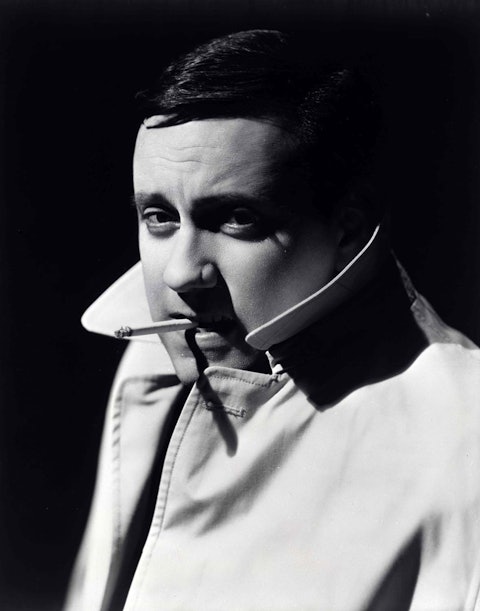
Ray Stevens looking debonair in a 1966 publicity photo.
-
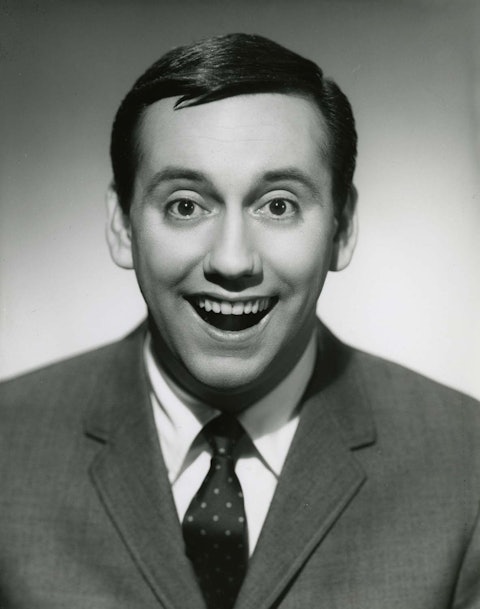
Ray Stevens clowning around in a 1966 publicity shot.
-
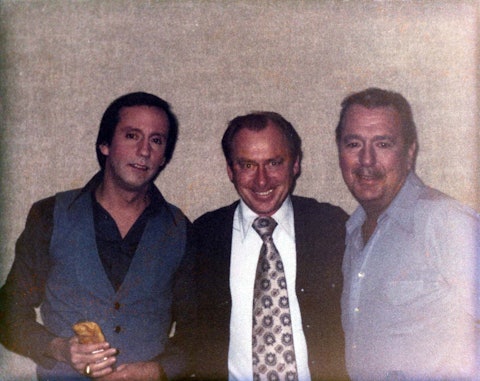
From left: Ray Stevens, musical arranger Bill Walker, and Tennessee Ernie Ford in a 1970s candid photo.
-
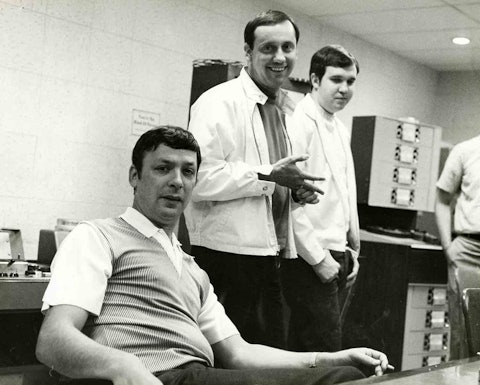
From left: Monument Records owner Fred Foster and Ray Stevens in the recording studio, 1970. Stevens recorded for Monument Records from 1965 to 1970.
-
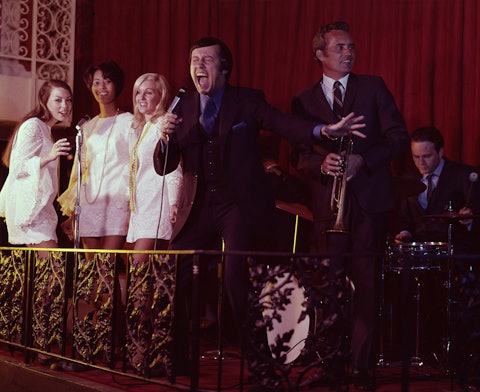
Ray Stevens performing onstage in 1969.
From Branson to CabaRay
From 1981 to 1993, Stevens operated an entertainment center in Branson, Missouri. At about this time he began selling video collections of his performances through enormously successful direct marketing TV campaigns.
Stevens spent the last few years working to establish an old-school showroom called CabaRay, inviting friends and co-conspirators to play a room meticulously designed by this hit-maker and innovator. Like Stevens’s catalog, CabaRay features a mash-up of music and entertainment, with comedy at the forefront but melodies and lyrics creating the backbone. Beginning in 2015, his shows at CabaRay have been televised, currently on PBS-TV stations across the nation.
In 1980, Stevens was made a member of both the Nashville Songwriters Hall of Fame and the Georgia Music Hall of Fame. He won the Music City News award for Comedian of the Year in nine consecutive years.
—Don Roy
Adapted from the Country Music Hall of Fame® and Museum’s Encyclopedia of Country Music, published by Oxford University Press
Ray Stevens enjoyed a reputation as a gifted multi-instrumentalist, in a league with eventual Country Music Hall of Fame member Charlie McCoy. He sang with the Jordanaires; played trumpet for an Elvis Presley session; wrote songs for Brook Benton, Skeeter Davis, and Dolly Parton; and contributed to Waylon Jennings’s classic “Only Daddy That’ll Walk the Line.”



